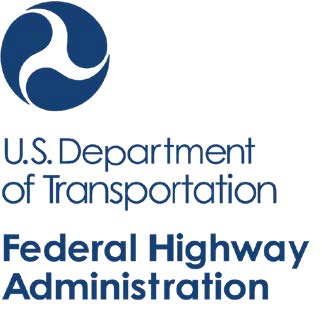U.S. Department of Transportation
Federal Highway Administration
1200 New Jersey Avenue, SE
Washington, DC 20590
202-366-4000
Treatment of Paycheck Protection Program Funds for Architectural and Engineering Consultants Guidance
 |
Memorandum |
This memorandum clarifies the requirements for the treatment of Paycheck Protection Program (PPP) loans received by consultants providing architectural and engineering (A&E) services¹ under Federal-aid or Federal lands highway program funded contracts, and particularly regarding PPP loans by engineering consultant firms that seek loan forgiveness. Direct and indirect costs on federally funded contracts will not require the adjustments described in this memorandum should an A&E consultant completely pay back PPP loans received.
Authorized by the Coronavirus Aid, Relief, and Economic Security Act (CARES Act),² the PPP provides loans to allow businesses to continue operating during this period of economic emergency. The Consolidated Appropriations Act, 2021³ subsequently allocated additional PPP funds and updated certain requirements for eligible borrowers. Section 1102 of the CARES Act temporarily permits the Small Business Administration (SBA) to guarantee 100 percent of Section 7(a) SBA loans under the PPP. Section 1106 of the CARES Act provides for forgiveness of up to the full principal amount of qualifying loans guaranteed under the PPP.
Funds provided by a PPP loan allow businesses to maintain payroll costs, keep employees from loss of work during the coronavirus disease 2019 (COVID-19) pandemic, and cover necessary overhead to continue business operations. While the PPP was enacted to permit an impacted employer to retain its employees on the payroll, it was not enacted to provide an economic windfall to the employer (e.g., where costs are reimbursed by the Federal government under a federally funded contract and the PPP loan is also forgiven by the SBA).
A&E consultants providing services under Federal-aid or Federal lands highway program funded contracts, and receiving a PPP loan, should continue to allocate and invoice both direct and indirect costs in accordance with contract terms and as prescribed in 48 CFR part 31. However, should the PPP loan proceeds be applied to costs (direct or indirect) within the scope of a federally funded contract and the PPP loan is forgiven, appropriate adjustments to consultant accounting records become necessary to comply with 48 CFR part 31.
The following applies when an A&E consultant's PPP loan is partially or completely forgiven:
The contents of this document do not have the force and effect of law and are not meant to bind the public in any way except to the extent that specific statutory and regulatory provisions mandate actions pertaining to the treatment of costs for A&E services under a Federal-aid or Federal lands highway program funded contract. This document is intended only to provide clarity to the public regarding existing requirements under the law.
For additional questions on PPP loan forgiveness and the impact to Federal-aid or Federal lands highway program funded contracts, contact Dan Parker from the Office of Financial and Management Programs at 801-955-3518 or by email at danial.parker@dot.gov.
cc: Directors of Field Services
Associate Administrator for Federal Lands Highway
¹ As defined in 40 U.S.C. § 1102(2) or 23 CFR § 172.3.
² Coronavirus Aid, Relief, and Economic Security Act, Public Law 116-136, enacted on March 27, 2020.
³ Consolidated Appropriations Act, 2021 (Public Law 116-260), enacted on December 27, 2020.